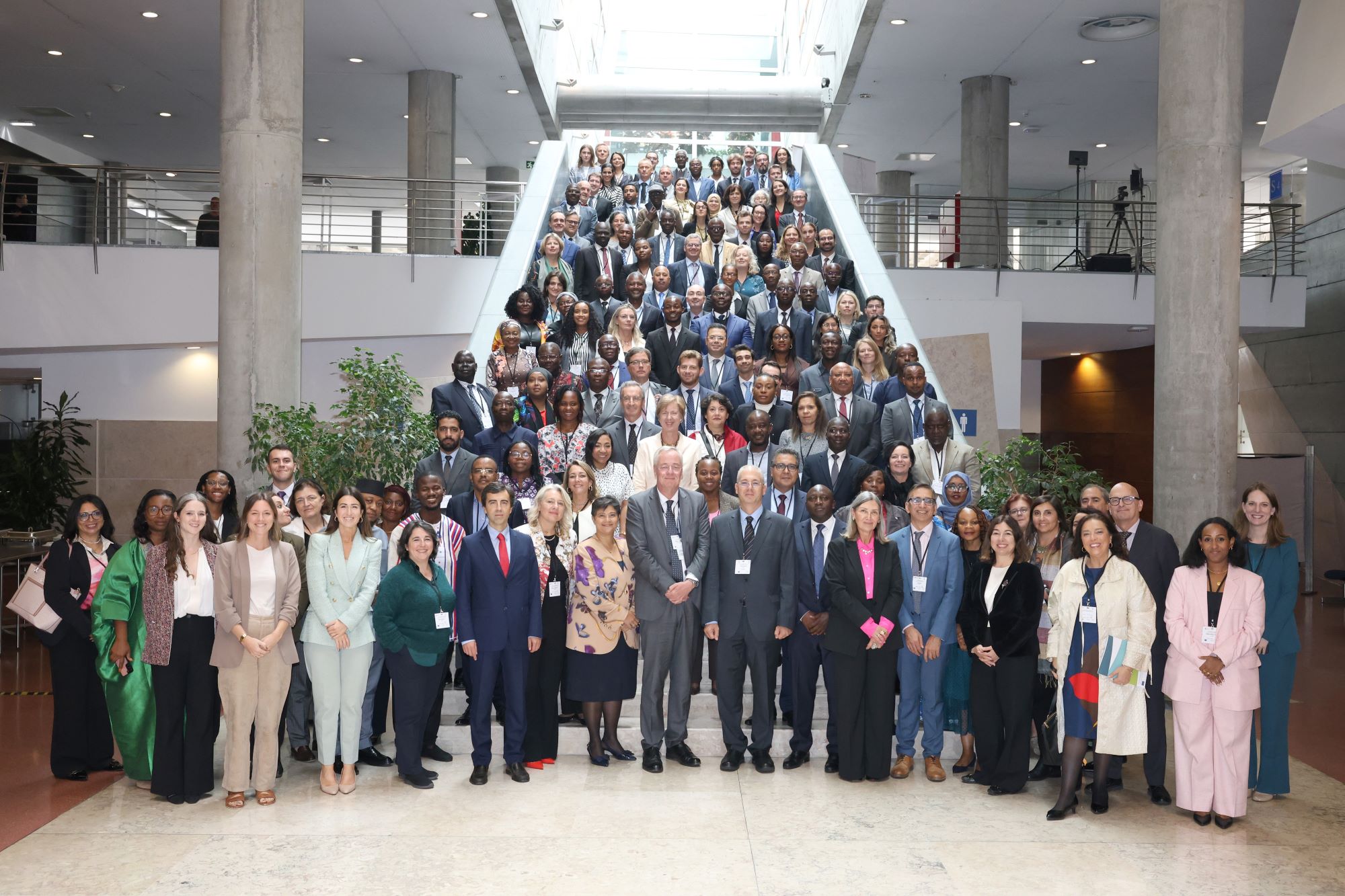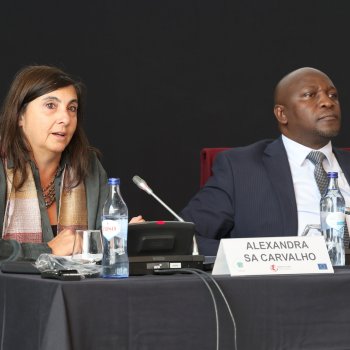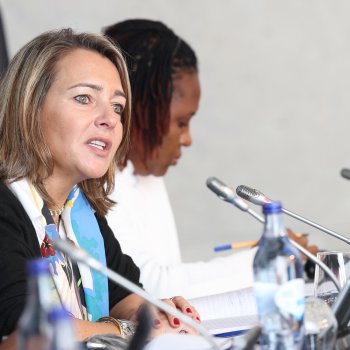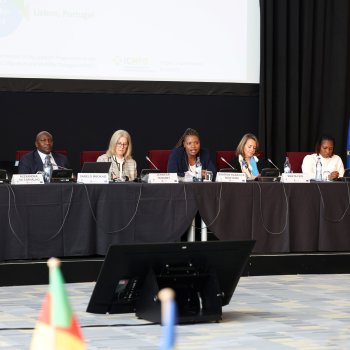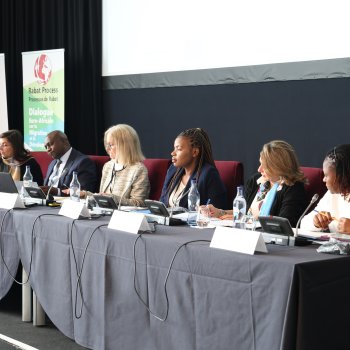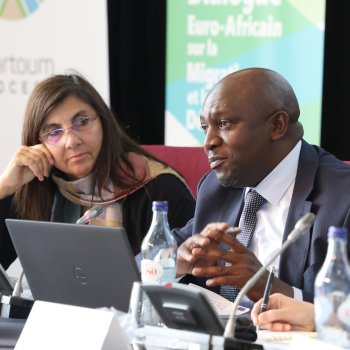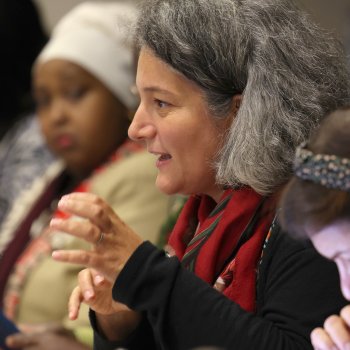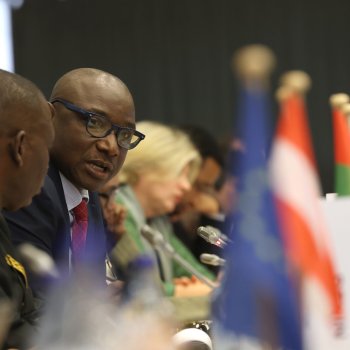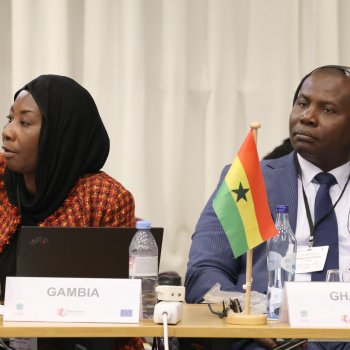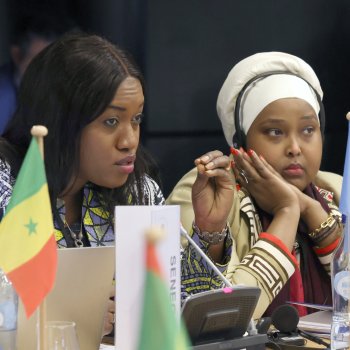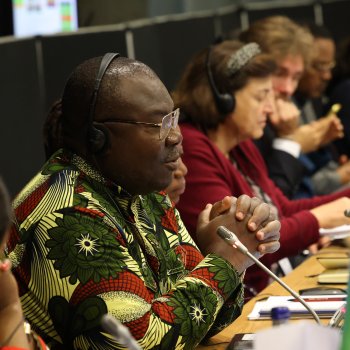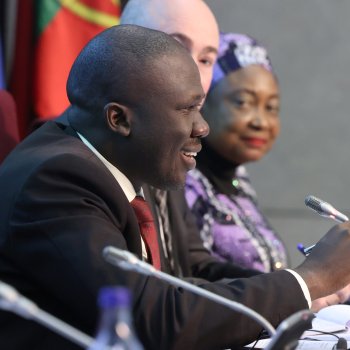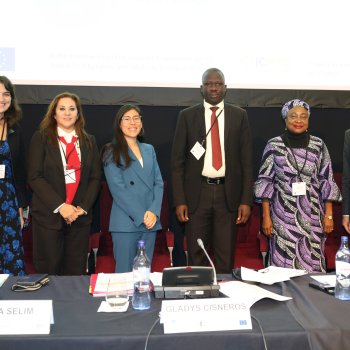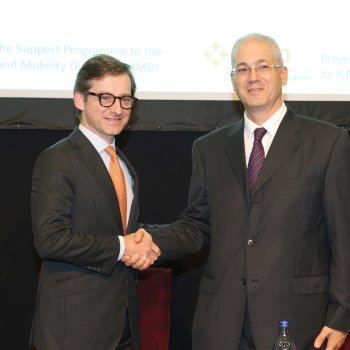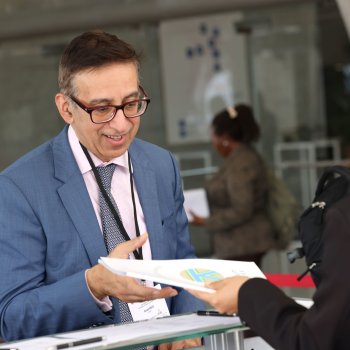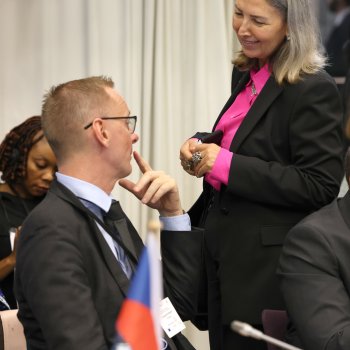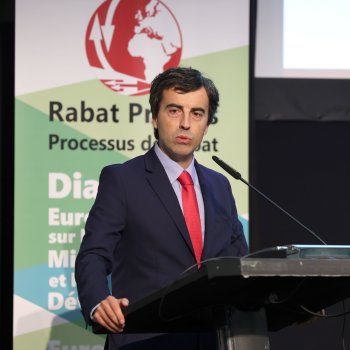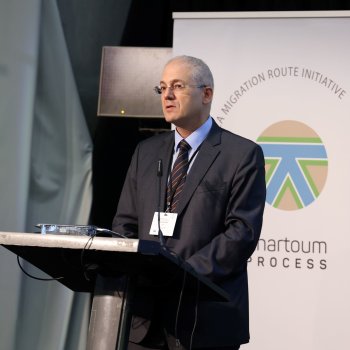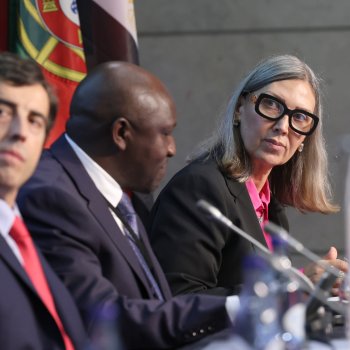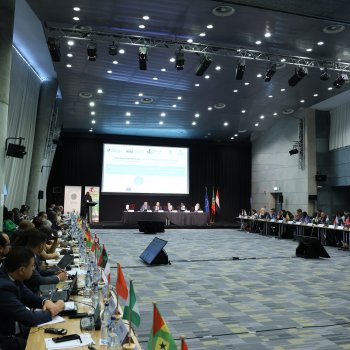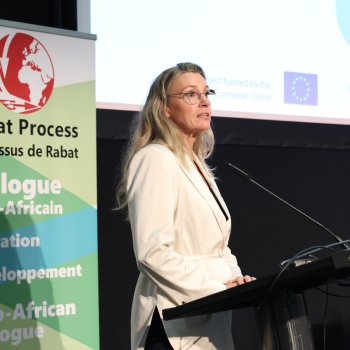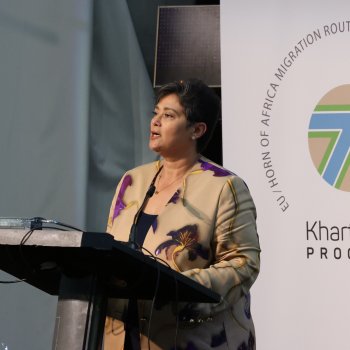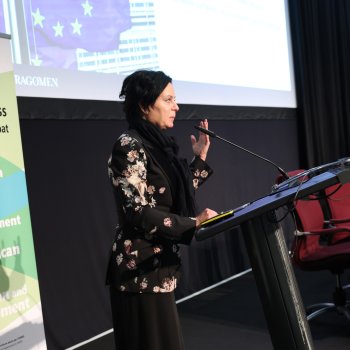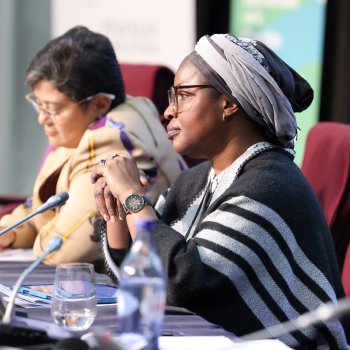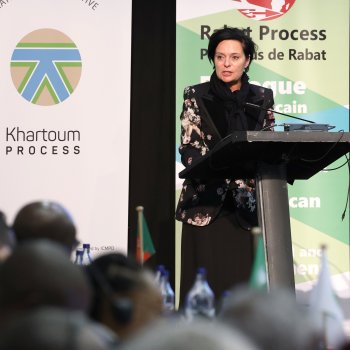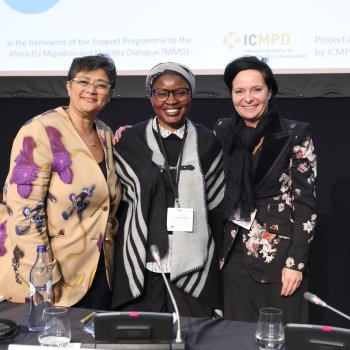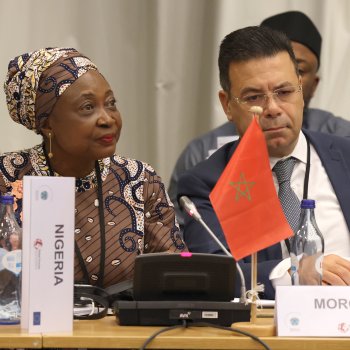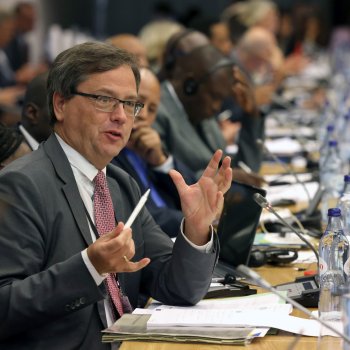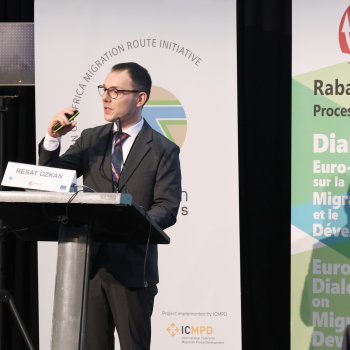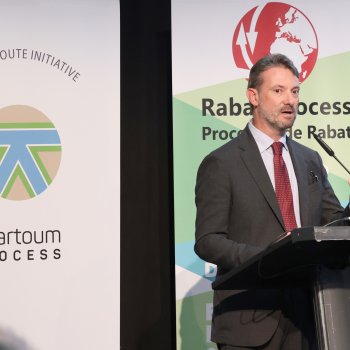On the 16 and 17 of October 2024, a Joint High-Level Meeting of the Khartoum Process and the Rabat Process was hosted in Lisbon, Portugal, under the Egyptian chairmanship of the Khartoum Process and the Portuguese chairmanship of the Rabat Process. The event gathered 156 participants, including 109 participants from 53 partner countries of both Dialogues, as well as international experts and representatives from international organisations. During this 2-day event, they shared lessons learned, best practices and key recommendations to strengthen bilateral and multilateral cooperation across Europe and Africa to foster skills mobility and talent attraction.
Diverse but converging African and European priorities
Two keynote speakers offered a broad overview of the current African and European contexts, and the main challenges faced by the two continents. In Africa, youth represent an important opportunity for growth and innovation, and migration can support development through skills enhancement and economic contributions. However, key issues such as brain drain, or skills mismatch hinder this potential. In Europe, while multiple initiatives exist at the national and EU level to foster talent attraction, such as Talent Partnerships, the complexity of procedures and their limited implementation restricts their impact. Several initiatives are also limited to skilled workers and fail to target key populations that would benefit from skills development programmes.
To mitigate these challenges, both keynote speakers proposed a series of measures that seek to enhance labour mobility, including the increased use of digitalisation, better data collection, the involvement of the private sector, or the effective implementation of existing pathways.
Innovative pathways for labour migration and skills mobility
The first session explored innovative programmes designed for skills development and mobility, effective (re)integration of workers in countries of origin and destination, or better skills matching. Digitalisation was identified as a crucial lever, as the development of digital tools and platform can support international labour mobility, job matching, better data collection, and effective vetting and monitoring of stakeholders such as job agencies or international employers to protect migrants against abuses. Speakers also stressed the importance of balanced partnerships that foster mutual benefits for countries of origin and destination while being mindful of workers’ rights.
During the second roundtable, five countries presented their frameworks for bilateral and multilateral cooperation. Experts emphasised the complementarity between formal tools, such as bilateral labour agreements (BLAs) and memorandum of understanding (MoU), and informal programmes that are easily adaptable to the changing needs of the labour market. While formal frameworks are a key legal document which include important provisions regarding the safeguarding of human rights and specific targets, informal programmes offer flexibility and are easier to implement. Additionally, speakers insisted on the need to adopt multistakeholder approaches and to develop cooperation at the regional and multilateral level as factors of success for labour mobility programmes.
Designing comprehensive migration pathways with win-win outcomes
32 recommendations were developed from the meeting discussions. Above all, participants and speakers emphasised the need for comprehensive pathways that are built on a thorough assessment of skills in demand; include a diversity of schemes for short-term, circular and long-term mobility; address the issue of brain drain and support the development of the workforce in countries of origin; ensure worker protection and good working conditions; support (re)integration in both host and origin countries; and involve all necessary stakeholders, including trade unions, the private sector, and other key partners. The inclusion of all these components should help ensure that mobility pathways support win-win partnerships that foster the development of countries of origin while addressing labour shortages needs and demographic changes in countries of destination.
Video
Watch the video featuring labour migration experts and key stakeholders, participants in this important meeting, on innovative pathways for skills mobility.

